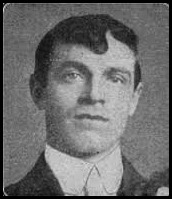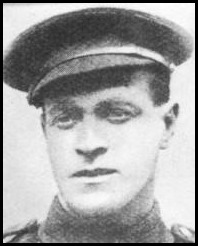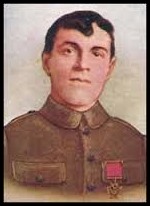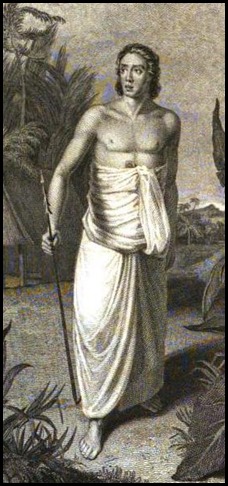William Mariner

Beez Neez now Chy Whella
Big Bear and Pepe Millard
Fri 22 Nov 2013 23:57
|
William
Mariner

 
William
Mariner (1791–1853) was an Englishman who lived in the Tonga Islands from
the 29th of November 1806 to (probably) the 8th of November 1810. He dictated an
account of his experiences, An Account of the Natives of the Tonga
Islands, that is now one of the major sources of information on
pre-Christian Tonga – a masterpiece of Pacific literature. William Mariner was a fifteen year old ship's clerk aboard the
British privateer Port-au-Prince. The ship anchored off the Tongan
island of Lifuka, in the Ha'apai island group. Initially the captain and crew
were welcomed with barbecued pork and yams.
The
Port-au-Prince was an English private ship of war, a vessel of
five hundred tons armed with twenty four long nine- and twelve-pound guns as
well as eight twelve-pound carronades on the quarter deck. She carried a “letter
of marque” and this document permitted her Captain and crew to become pirates
against the enemies of England, primarily France and Spain. In payment for their
pirate raids any plunder they seized was to be their own. Commanded by Captain
Duck she sailed for the New World on the 12th of February 1805 having been
given a twofold commission by her owner, a Mr. Robert Bent of London. Their
primary goal was to attack the Spanish ships of the New World capturing gold and
valuables but if she failed in that task her secondary objective was to sail
into the Pacific in search of whales to be rendered for their oil.
The Atlantic crossing was rough but
uneventful and she lay off the coast of Brazil by April and then rounded Cape
Horn in July before proceeding north in search of Spanish Galleons laden with
treasure. They captured a number of ships but most yielded little in the way of
valuables and at times the men began to get disgruntled by capturing what they
contemptuously referred to as dung barges. The Port-au-Prince was now
also on the lookout for whales as well but, although catching a few, experienced
little success in this endeavour.
After leaving Hawaii in September
under the command of Mr. Brown, she intended to make port at Tahiti but missed
the port and sailed westward for the islands of Tonga instead. She arrived in
Ha’apai on the 9th of November 1806, almost two years after leaving England and
numerous engagements later, leaking badly and having witnessed the death of her
captain. She was laden with the spoils of war and cargo amounting to
approximately twelve thousand dollars, plus a considerable amount of copper,
silver and gold ore. A large quantity of silver candlesticks, chalices, incense
pans, crucifixes and images complemented the treasure. She weighed anchor for what was destined to be the last time in seven
fathoms water off the North West Point of Lifuka Island. A number of chiefs
visited the ship on the evening of her arrival and brought with them food gifts
and a native of Hawaii who spoke some English informing Captain Brown that the
Tongans had only friendly intentions. The Port-au-Prince also had some
Hawaiian crew who did not trust the situation and expressed concern to the
captain that the Tongans were feigning friendliness while planning attack.
Captain Brown chose to ignore the warnings, therein signing his own death
warrant and that of many of his crew.
The next day the natives began to
swarm the boat until there were around three hundred aboard in different parts
of the ship. They invited Captain Brown ashore to see the Island and assured of
their friendly motives he agreed. Setting foot ashore, he was clubbed to death,
stripped and left lying in the sand. Simultaneously, the main attack commenced
on the Port-au-Prince. The crew set fire to their ship, rather than
have her taken but were outnumbered and overwhelmed easily. The massacre was
brutal and swift seeing all but four of the crew members meeting the same end as
the captain, their heads so badly beaten as to be unrecognisable to the
survivors. Some of the cannons got so hot in the fire they began to fire causing
great panic amongst the Tongans. For the next three days the ship was stripped
of her iron, a valuable commodity, and her guns were removed before being burnt
to the water line to more readily remove what iron remained.
 Mariner's sojourn in Tonga: One of the survivors was William Mariner, Chief Finau had taken a
shining to the lad when they first met aboard the Port-au-Prince.
William reminded the King of his son who had died of illness and when the attack
on the ship was being planned Finau had given instructions that the life of
Mariner should be spared if at all possible. William later pantomimed the an
explanation of why the cannons had gone off and through this, established a good
with the locals. He was renamed Toki 'Ukamea (Iron Axe) and Finau appointed one
of his royal wives, Mafi Hape, to be his adoptive mother. He spent the next four
years living amongst the islanders, learned the language well and traveled with
the chief, observing and absorbing the finer points of Tongan ceremony and
protocol. During this time he would witness the attempted unification of the
Kingdom by Finau using the very guns seized from the Port-au-Prince.
One long nine still lies on Ha’anno Island.
He also gave a lively
description of his lord and protector Fīnau Fangupō (ʻUlukālala II). One quote
from Mariner, giving Fīnau's opinion of the Western innovation of money, can be
found in paʻanga.
"If money were made
of iron and could be converted into knives, axes and chisels there would be some
sense in placing a value on it; but as it is, I see none. If a man has more yams
than he wants, let him exchange some of them away for pork. [...] Certainly
money is much handier and more convenient but then, as it will not spoil by
being kept, people will store it up instead of sharing it out as a chief ought
to do, and thus become selfish. [...] I understand now very well what it is that
makes the papālangi [white men] so selfish — it is this money!“
Chief Finau,
the king’s son gave permission for William to leave on a passing English vessel.
After rescue and his return to England Mariner had a chance meeting with an
amateur anthropologist called John Martin, to whom he told his story. Martin
wrote the book The Tongan Islands, William Mariner's
Account.
Mariner's books:
There are three major versions of Mariner's account. The original version was
first published in 1817 by John Murray II, with the help of Dr. John Martin, who
assumed authorship. Later editions appeared in England in 1818 and 1827 and in
Germany in 1819 and the United States in 1820. The Vava'u Press of Tonga issued
a new edition in 1981 that includes a biographical essay about Mariner, written
by Denis Joroyal McCulloch, one of Mariner's great-great grandsons, but leaves
out the grammar and dictionary. Two modern editions with modern Tongan spelling
and other additions have been published, the first by Boyle Townshend Somerville
in 1936 and the second by Paul W. Dale in 1996.
Tonga Islands: William Mariner's account : an
account of the natives of the Tonga Islands in the South Pacific Ocean, with an
original grammar and vocabulary of their language. Vava'u Press; 4th ed., 1981.
ASIN B0006EB4WI.
Will Mariner: A True Record of Adventure by Boyle
Townshend Somerville. London: Faber and Faber, 1936.
The Tonga Book by Paul W Dale. London: Minerva
Press, 1996. ISBN 1-85863-797-X.
ALL IN ALL A FASCINATING
STORY
VERY PROPHETIC COMMENT ABOUT
MONEY |